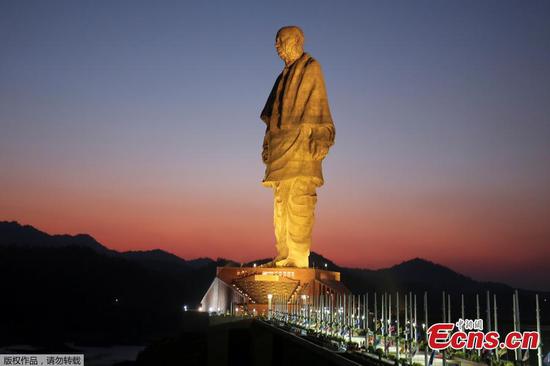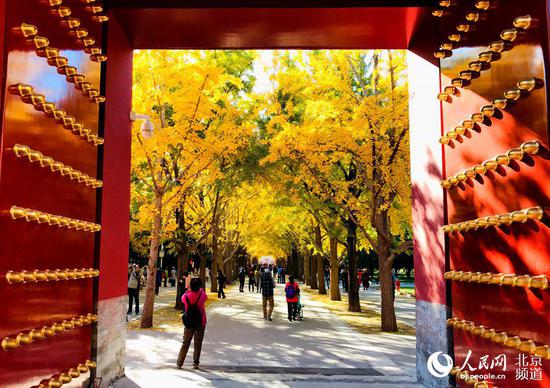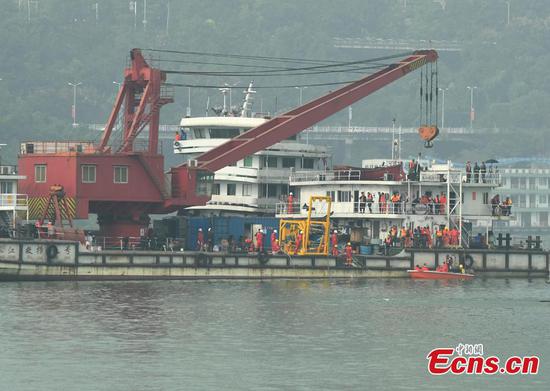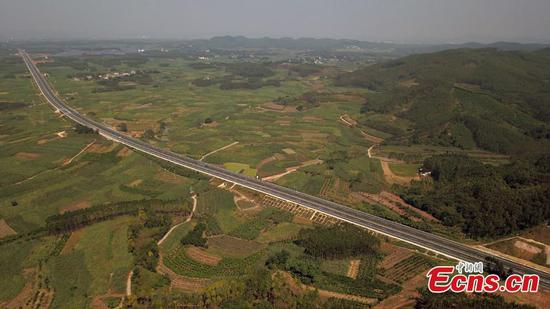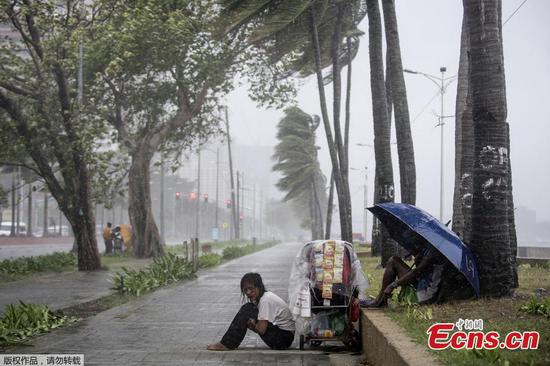Railway authorities in the Xinjiang Uygur autonomous region will provide a larger number of services to connect multiple tourist attractions and meet rising demand from visitors wanting to travel around the region by train.
From January to October, 1,560 tourist train services ran in the region, carrying more than 720,000 passengers, including 169 trains that traveled from other provinces to Xinjiang, according to China Railway Corp's bureau in Urumqi, the regional capital.
The rail service aims to provide travelers with more convenience. The region's scenic spots are separated by long distances, so the timetables are designed to link them, said Huang Tingfen, deputy manager of Urumqi International Tourism Co. "When the trains reach each station, buses are on hand to take passengers to the scenic sights and return them to the trains at the required time to leave for the next destination," he said.
Some double-decker tourist trains have been upgraded with recreational facilities to help passengers kill time, including cafes, mini-cinemas, karaoke bars and chess and card rooms, as well as 18-stall shower rooms, he added.
Last month, Yin Jun, 59, took a 10-day train trip to four tourist sites in southern Xinjiang.
"I enjoyed the relaxing atmosphere in the carriages, especially travelling with many friends from different places. Many activities such as recitals and photo contests were held in the carriages to pass the time," she said.
"We recited poems and looked at the photos we had taken as the beautiful and unique natural landscape passed by outside. It was much more comfortable than a coach, especially for seniors - some of the passengers on my train were in their 80s - and it was also cheaper than flying."
Xu Yan, a tour guide who takes groups on 10-day tours of southern Xinjiang, a key area for the country's targeted poverty alleviation programs, said, "Before the journey we appeal to the tourists to take things they can donate to the locals if they want, and most do."
The tours started in August, and so far total donations have exceeded 100,000 yuan ($14,400). "The tourists have a nice time with the locals, and are also touched by their poor living conditions," Xu said.
Huang, the tourism agent, said the rail services help to boost tourism in areas that are poor, but boast beautiful scenic spots, and as Xinjiang's rail network develops more routes will be arranged and more services will run on a regular basis.
"We are also working with railway departments in other provinces to arrange more cross-provincial tourist trains," he added.














